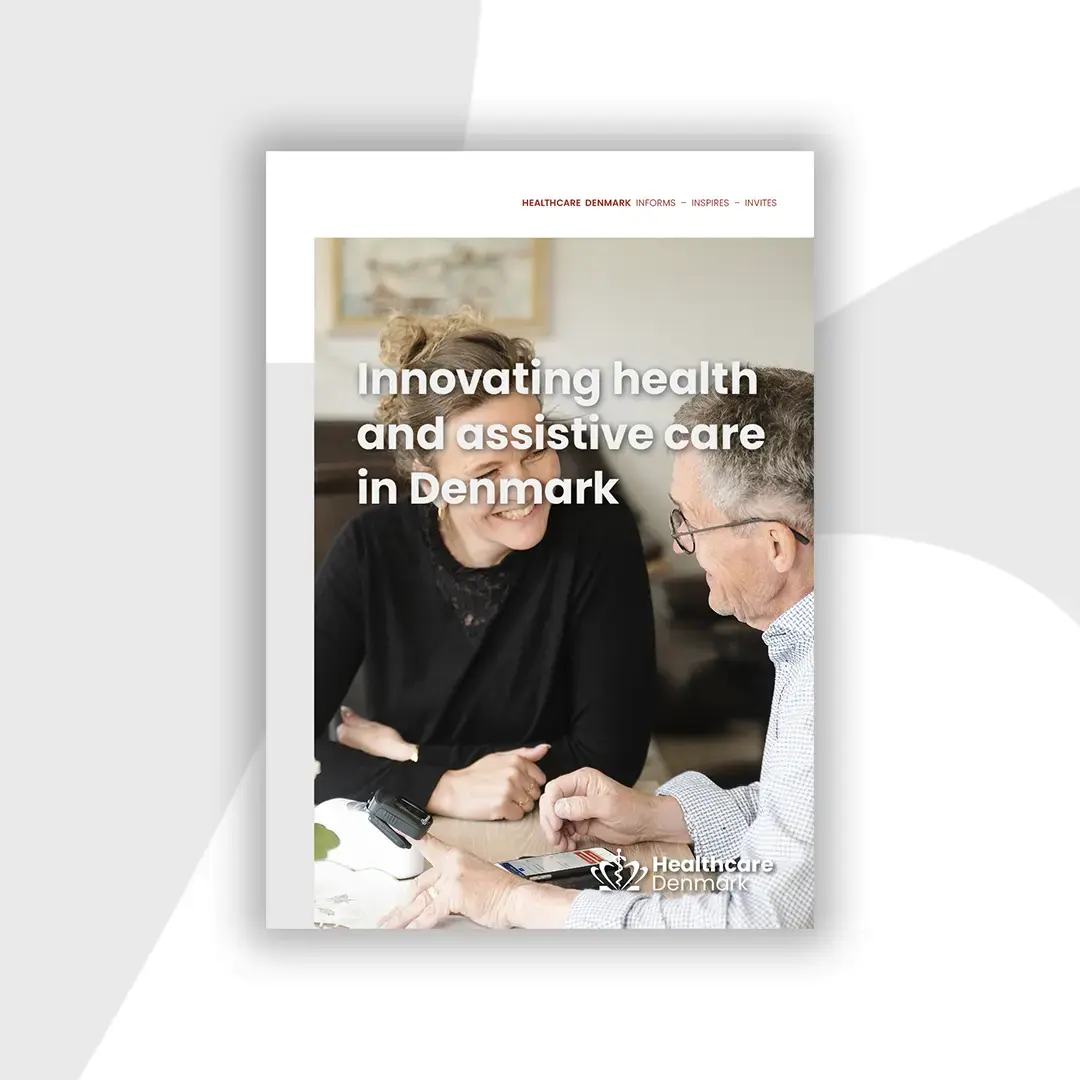Innovation in Healthcare
Like many other countries, Denmark is facing the demographic challenge of a fast-growing ageing population which puts a severe strain on both the human and the financial resources. To address this challenge, we must foster innovation and adopt more efficient approaches to delivering healthcare services in the years ahead. Denmark has a long tradition for interdisciplinary, cross-sector collaboration and systematic public-private innovation e.g., when running clinical trials or testing new technology.
In Denmark, we cherish our proud tradition of cooperation between the public and private sectors — in particular in the healthcare sector. Basing innovation and ideas for new solutions on strong collaboration between hospitals, universities and private companies has earned Denmark international recognition for its user-driven innovation culture. Public–private partnerships with high levels of stakeholder involvement are defined by the uniquely Danish concept of user-driven innovation projects, which play a key role in the development of new solutions. This concept is also key to achieving successful outcomes for the benefit of patients, the healthcare system, and society as a whole.
User-driven innovation projects typically originate with a hospital, a municipal authority, a primary care organisation, or another healthcare organisation that has identified a problem to be solved through innovative concepts and solutions. In many cases, universities or cluster organisations also play a role in motivating healthcare organisations to bring strategic or daily operation problems forward.
A high level of user involvement is required to ensure that our current and future needs are identified, so that the solutions will work in practice. Users may include patients, families, healthcare professionals and hospital staff, as their varied perspectives and experiences are essential in the development of new innovative solutions. The Danish experience with involving users at a very early stage of the design and development processes helps to ensure the successful implementation and end-use of the solutions.

Innovating health and assistive care in Denmark
Like many other countries, Denmark is facing the demographic challenge of a fast-growing ageing population which puts a severe strain on both the human and the financial resources. To address this challenge, we must foster innovation and adopt more efficient approaches to delivering healthcare services in the years ahead. Implementation of health and assisted technologies in private homes, care homes and hospitals play a key role in meeting this challenge in collaboration with citizens and patients, enabling solutions that are sustainable and do not compromise the quality of treatment and care.
This publication offers innovative cases to improve working environment for healthcare professionals and improve independence and quality of life for citizens.
Download the publication below to read more about the Danish approach to innovation and use of assistive and health technologies.
All videos related to this stronghold
Strongholds within Innovation
New robotic solutions controlled by software and sensor technology will facilitate the use of applications for a wide range of tasks.
Decentralised clinical trials (DCTs) introduce a revolution in the clinical trial industry.